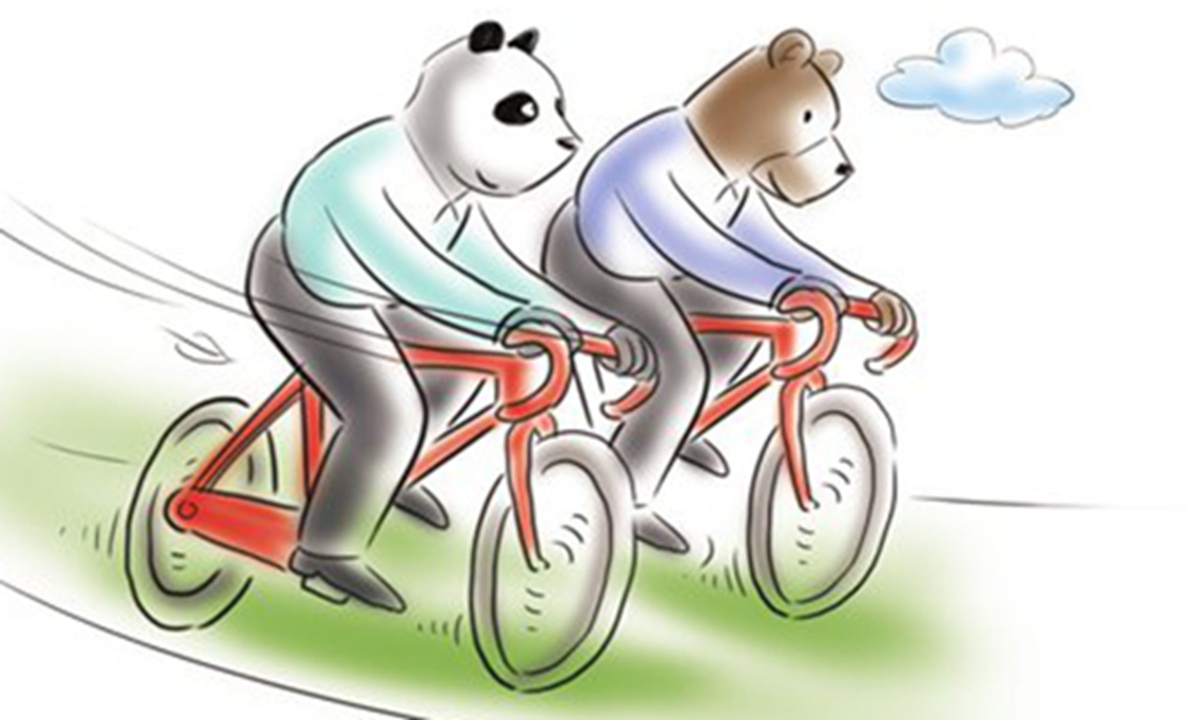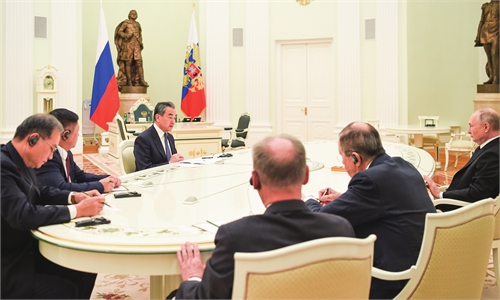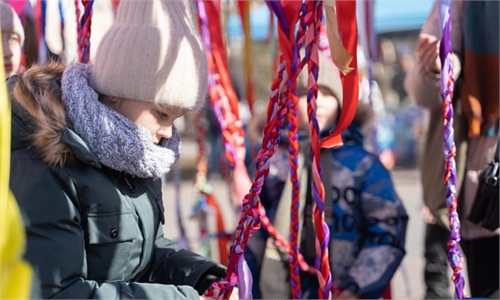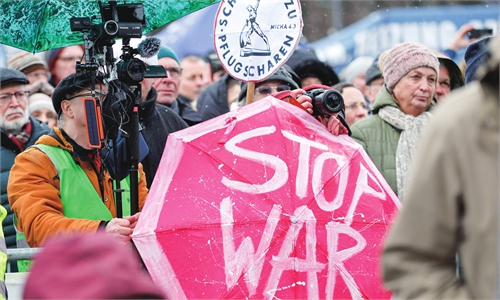
Illustration: Liu Rui/GT
In December 2022, Wang Yi, then member of the Political Bureau of the Communist Party of China Central Committee, state councilor and minister of foreign affairs, speaking at a symposium on Chinese diplomacy, said that for both the world and China, the outgoing 2022 is critical in bridging the past and the future. For Russia, this year has also become critical too. Its hopes for amicable resolution of contradictions with the West have collapsed.The collective West, which is rapidly losing economic influence and moral authority in most parts of the planet, has bitten the bullet, provoked and fueled an open conflict between Ukraine and Russia, and is actively trying to ignite the fire of war on our planet.
However, last year became a turning point in Russia modern history, not only because open confrontation with the West has become a fact. The other reason was the collapse of the neoliberal idea in Russia, thereby creating opportunities for its entry into a new stage of development. The prediction of US and European strategists that the Russian economy would collapse under the weight of sanctions and provoke the people to "fight against the totalitarian regime" did not materialize.
The Russian economy and its management system have turned out to be much stronger than the West believed, and the inoculation of minds of Russian people against neoliberal ideas turned to be effective. Moreover, the very word "liberal" has finally become abusive among Russians. Some of the liberals quickly fled the country. Others remained; they hid but have not disappeared. It is not the end of the story, but a chance to change the trajectory of movement.
Under these circumstances, Russian society began better realizing the perniciousness of a one-sided orientation towards the West. Illusions about "Western democratic values" that for decades clouded the minds of many Russians have dissipated like smoke. Against this background, the country's politicians returned to the slogan of "Russia's turn to the East."
The first attempt of the "eastern turn" in the 21st century (but not the first in Russian history) was not successful. The chief goals of the "turn" were not achieved. Russia has not been able to strengthen its position in the region, and the development of its eastern regions has not received the expected impetus.
The turn didn't happen for many reasons which predominantly lie not in the sphere of economics and management, but in ideology and way of thinking. One of the main sources of the failure was the influence of neoliberal ideas and Western political and economic models, in which the East was presented not as an equal partner in world affairs, but as a jungle, whose interests and opinion can be neglected. The idea to turn the richest territories of the country into a "bridge", "corridor", "transit zone", "raw material base of Russian exports" was flawed, outdated and identical to the approaches of European and American colonizers, which they have used for centuries for their own enrichment.
Disbelief in oneself, worship of other people's ideas, alien ideology and dubious values seriously impeded Russia's movement into the future, in which the main vector is not a turn to the East, but a return to itself, to its own roots and origins.
A new Russia's turn to the East should not be a reorientation of economics and geopolitics only. More important for us is to return to the true essence of Russian civilization. In this essence, the West and the East are represented to the same extent. This is the uniqueness and strength of Russia. Russia's current reluctance to play to the tune of the Western world does not mean abandoning the gains it owes to European civilization, nor its attempt to adapt to the East. "Russia is an original civilization," Russian President Vladimir Putin confirmed in a message to the Federal Assembly on February 21 this year. - This civilization is ours... It was passed on to us by our ancestors, and we must preserve it for our descendants and pass it on. We will develop cooperation with friends..., but rely primarily on our potential, on the creative energy of Russian society, on our traditions and values."
Over the past decade, we have achieved a lot in Russia-China relations. We have significantly increased the volume of trade in energy resources. We learned how to work together - with tough opposition from the Western world - on the platforms of international organizations in solving urgent world problems. But this is not enough. The world has changed. It is necessary to strengthen the ideological foundations and practical elements of this phenomenon of contemporary political culture. To such components I would include, first of all, science and technology, cross-border and military cooperation, space and deep-sea technologies. And, of course, we must work together, involving all interested parties, to build a concept of our common future, the very one that Chinese leader calls community with a shared future for mankind.
The author is Academician and principal researcher at the Russian Academy of Sciences. opinion@globaltimes.com.cn



